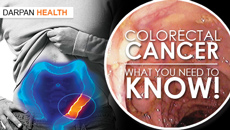Teenagers who do not get enough sleep may tend to become obese in course of time, says a new research.
Researchers at Mailman School of Public Health at Columbia University and University of North Carolina's Gillings School of Public Health examined the effect of sleeplessness on obesity in teenagers over time.
They found that the risk of being obese by age 21 was 20 percent higher among 16-year-olds, who got less than six hours of sleep a night, compared with their peers who slumbered more than eight hours.
"Lack of sleep in your teenage years can stack the deck against you for obesity later in life," said Shakira F. Suglia, an assistant professor of epidemiology at Mailman School, Columbia University.
"Once you are an obese adult, it is much harder to lose weight and keep it off. And the longer you are obese, the greater your risk for health problems like heart disease, diabetes and cancer," Suglia added.
The message for parents is to make sure their teenaged kids get more than eight hours of sleep a night.
For the study, data on over 10,000 American teenagers and young adults aged between 16 and 21, was collected as part of the National Longitudinal Study of Adolescent Health.
Information on what the teens ate was not captured in the surveys although it could play a role.
Future research may look into whether, for example, soda consumption is a factor in sleeplessness and, in turn, obesity.
The results appeared in the Journal of Pediatrics.





